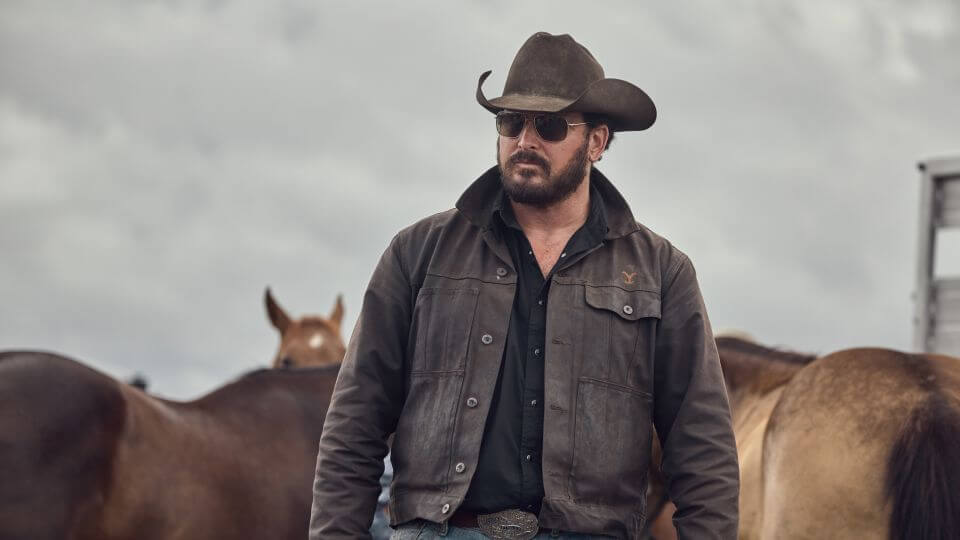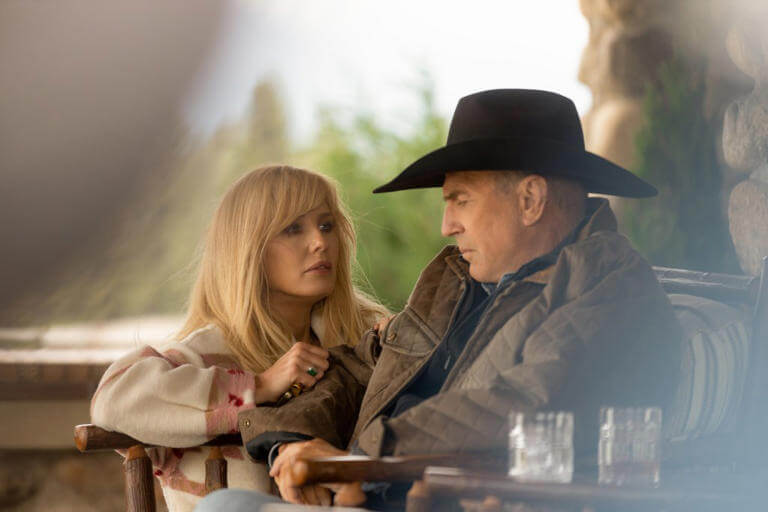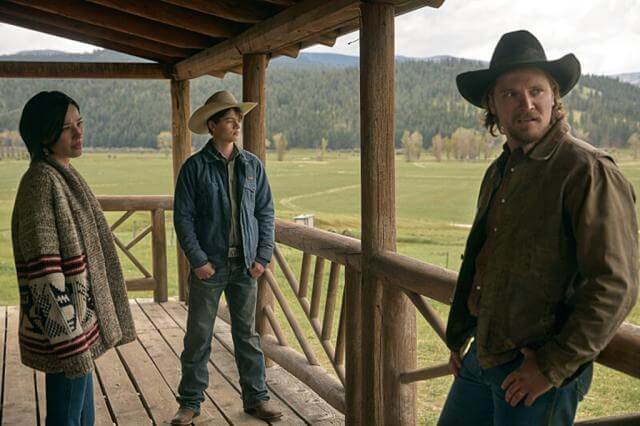World News
Yellowstone Finale Review: Taylor Sheridan’s Ambitious Yet Bloated Goodbye
The End of an Era: Setting the Stage for the Yellowstone Finale
After five seasons of sprawling storytelling, family feuds, and the constant battle over power and land, Yellowstone, Taylor Sheridan’s iconic modern Western drama, reached its much-anticipated conclusion. The finale, titled “Life is a Promise”, attempts to wrap up the epic saga of the Dutton family, their sprawling Montana ranch, and the generational conflicts that have defined the series. Yet, for all its ambition, Sheridan’s swan song leaves viewers with mixed emotions. While the final episode offers glimpses of the sweeping drama and tension fans have come to love, it struggles to balance its various plotlines and character arcs, often feeling bloated and unfinished.
The show, which rose to cultural prominence for its gritty storytelling and exploration of power dynamics, comes to a close without the punch some fans might have hoped for. At its heart, Yellowstone has always been about legacy — the fight to hold onto family, land, and identity in the face of relentless outside forces. However, with Kevin Costner’s departure and the creative challenges that followed, the finale seems stretched thin as it strives to tie up loose ends while staying true to its central themes. Yellowstone’s ending is both a farewell and a question mark, as viewers grapple with its ambitious yet uneven attempt to conclude a saga of this scale.

Kevin Costner’s Absence: The Missing Dutton Patriarch
One of the most notable aspects of the finale is the absence of John Dutton, played by Kevin Costner. Throughout the series, Costner’s portrayal of the Dutton patriarch anchored the show, serving as the moral and emotional core of Yellowstone. Yet, as rumors of off-screen conflicts and scheduling issues swirled, it became clear that Costner’s role in the final season would be minimal. The decision to remove John Dutton from the central narrative fundamentally altered the finale’s tone and structure, leaving a noticeable void.
The show attempts to compensate for Costner’s absence by shifting focus to other characters, particularly Beth Dutton (Kelly Reilly) and Jamie Dutton (Wes Bentley). Their longstanding feud remains a significant focal point, but without John to mediate or drive the tension forward, it often feels one-dimensional. Kayce (Luke Grimes) and Monica’s storyline provides a quieter, more reflective arc, yet it lacks the weight needed to counterbalance the finale’s more dramatic moments.
Ultimately, John Dutton’s absence impacts the finale in more ways than one. Not only does it feel incomplete without the family’s patriarch, but it also forces the narrative to rely on secondary characters and subplots that lack the same gravitas. While Sheridan’s writing attempts to fill the gaps, the absence of Costner’s commanding presence looms large over the episode, making it difficult to fully invest in the show’s conclusion.
Beth and Jamie: A Feud Without Resolution
Beth and Jamie Dutton’s toxic and explosive relationship has been a driving force throughout Yellowstone. The finale continues to explore their unrelenting hatred for each other, but instead of delivering a satisfying resolution, it merely escalates the conflict without offering closure. Beth, a character known for her sharp wit and unforgiving demeanor, remains locked in her quest for vengeance against Jamie, whom she blames for irreparable family damage. Meanwhile, Jamie’s desperation and attempts to reclaim his sense of identity result in increasingly reckless decisions.
The tension between these two characters culminates in a series of confrontations that showcase their mutual destruction. However, instead of delivering the explosive climax fans expected, the finale feels repetitive. Beth’s character, while still compelling, becomes trapped in a cycle of vengeance, robbing her of the opportunity for growth or redemption. Jamie, on the other hand, is portrayed as a tragic figure whose narrative arc feels incomplete. His motivations and decisions, though pivotal, lack the depth needed to make his story resonate in the finale’s broader narrative.
The unresolved nature of Beth and Jamie’s feud highlights a broader issue with Yellowstone’s finale: its reluctance to provide clear answers or meaningful closure. For a storyline that has driven much of the series’ tension, the lack of resolution feels like a missed opportunity, leaving viewers with more questions than answers.

Themes of Legacy and Loss: The Duttons’ Final Stand
At its core, Yellowstone has always been a story about legacy — the fight to preserve family, land, and power in an ever-changing world. The finale attempts to reinforce these themes, but its execution feels inconsistent. The Dutton family’s struggles with loss and change are front and center, yet the emotional impact of these themes is diluted by the show’s sprawling narrative and pacing issues.
One of the finale’s most significant moments is Kayce’s decision to sell the Yellowstone ranch, a move that marks the end of an era for the Duttons. For a family that has fought so hard to hold onto their land, this choice feels both poignant and bittersweet. Yet, the decision is handled with surprising brevity, depriving the moment of the emotional weight it deserves. Similarly, Beth and Rip’s storyline, which sees them retreat to a smaller ranch to start anew, feels like a quieter conclusion that lacks the drama fans have come to expect.
Meanwhile, Chief Rainwater and the Broken Rock Tribe reclaiming the land serves as a powerful commentary on justice and reclamation. Throughout the series, Sheridan has explored the complex relationship between the Duttons and the Native people of Montana, and this moment provides a sense of resolution for that particular arc. However, while thematically significant, it feels rushed in the context of the finale’s broader narrative, as if Sheridan is trying to address too many storylines at once.
A Bloated Goodbye: The Challenges of Ending Yellowstone
Taylor Sheridan’s ambition has always been a defining characteristic of Yellowstone. From its sweeping cinematography to its intricate character dynamics, the show has consistently aimed high, and its finale is no exception. However, in its attempt to tie up loose ends and deliver a satisfying conclusion, the finale feels bloated and, at times, disjointed. The sprawling narrative, combined with the absence of key characters like John Dutton, makes it difficult for the episode to maintain focus or momentum.
The finale’s pacing is another point of contention. While certain moments — such as Kayce’s final decision or Chief Rainwater’s reclamation of the land — carry emotional weight, they are often overshadowed by less impactful subplots. Sheridan’s desire to address every storyline ultimately works against the episode, resulting in a finale that feels overstuffed and underwhelming.
That said, Yellowstone still manages to deliver moments of beauty and poignancy. The series’ signature visuals, including sweeping shots of the Montana landscape, serve as a reminder of the show’s cinematic grandeur. Likewise, the performances of the cast — particularly Kelly Reilly and Wes Bentley — remain a highlight, even when the writing falls short.
In the end, the Yellowstone finale is a reflection of the show’s strengths and weaknesses. While it offers a farewell to the Dutton family and their legacy, it struggles to provide the clarity and cohesion needed for a truly satisfying conclusion.
Conclusion: A Flawed Farewell to a Landmark Series
The Yellowstone finale, “Life is a Promise,” marks the end of one of television’s most significant dramas, but it does so with a sense of incompleteness. Taylor Sheridan’s ambitious storytelling, combined with the absence of Kevin Costner’s John Dutton, leaves the finale feeling bloated and uneven. While it offers glimpses of the themes and drama that made Yellowstone a cultural phenomenon, it ultimately falls short of delivering the emotional payoff fans expected.
Despite its flaws, Yellowstone remains a landmark series that redefined the modern Western genre and captivated audiences with its exploration of family, power, and legacy. Its finale may not have provided the perfect goodbye, but it serves as a testament to the show’s impact and the enduring power of its story. For better or worse, Yellowstone has cemented its place in television history, and its legacy will continue to resonate with fans long after the credits roll.
From dragontrendtees


